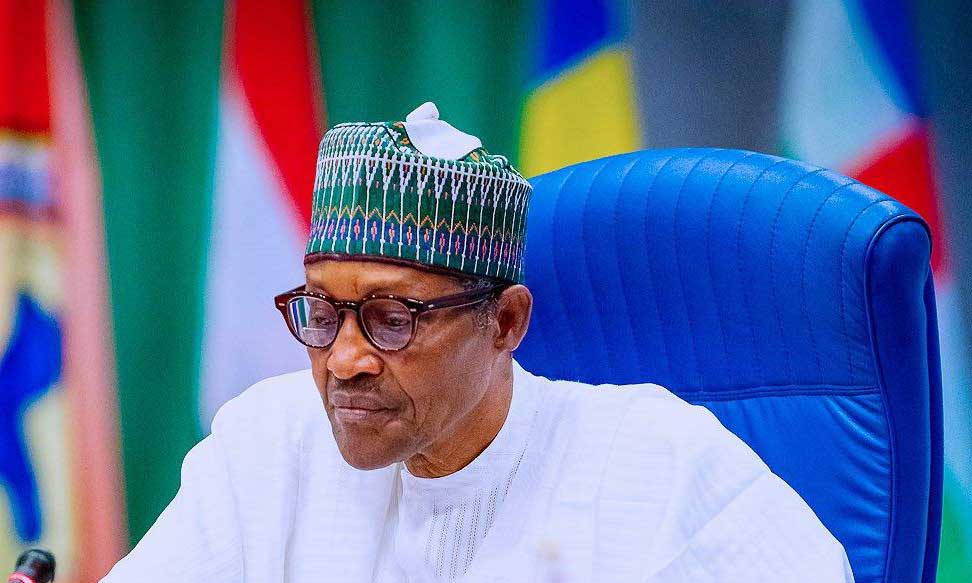Six years after the launch of the Presidential Enabling Business Environment Council which was inaugurated by the Federal Government to ensure ease of doing business in Nigeria, the Nigerian Economic Summit Group on Monday said that the level of competitiveness of the Nigerian economy is still weak.
The NESG Chairman, Mr Asue Ighodalo said this at the opening session of the 28th Nigerian Economic Summit held in Abuja.
The event was attended by Vice President Yemi Osinbajo, and other key government official such as the Minister of Finance, Budget and National Planning, Mrs Zainab Ahmed; the Minister of State for Planning, Clem Agba; and the Minister of Agriculture and Rural Development, Dr Mohammed Abubakar among others.
Also in attendance were stakeholders from the private sector.
PEBEC was set up in July 2016 by President Muhammadu Buhari to remove bureaucratic constraints of doing business in Nigeria.
But speaking at the event, Ighodalo wondered why the Nigerian economy, after so many years of implementing various measures have yet to be at par with its peers in the world.
He said too many lips service have been paid to the issue of fixing the economy, adding that this has raised the question if the government actually has the political will to implement the needed reforms that would take the economy to the path of sustainable growth.
The NESG Chairman said, “We must start by achieving macroeconomic stability as this is the foundation of economic growth. Too much has been said by too many on this issue that we sometimes wonder at the lack of will.
“Our Economic competitiveness is weak. Simply put; we don’t produce enough, for ourselves and can’t produce for the world. We must, take active steps to multiply our productive output particularly in those areas that support foreign exchange earnings and enhance livelihoods – oil and gas (gas particularly), agriculture and its manufactured derivatives easily come to mind.
“We must effectively address all areas of waste, leakage, theft or graft. Gas flaring, must stop. Only a nation that does not take itself seriously will cry out year after year for power, but continue to fritter away a resource that can deliver that power.
“We must think through ingenious ways of fixing and strengthening our institutions; paying particular attention to, our civil service and judiciary and changing the attitude and temperament of those of us who work in these institutions.
“Simultaneously and most urgently, we must continue to tackle our National Security issues with vigour, aggression and intelligent resource deployment.”
A prosperous Nigeria, according to him, cannot be created without decisively dealing with the issues of insecurity and infrastructure deficit.
He added, “Starting first with infrastructure investments that directly power economic activity, like overhauling our deep seaports, which are gateways to trade, or building fully gas-powered special economic zones, whose return on investment is both linear and tangible.
“It is not rocket science, but we must put in place policies and incentives that attract patient capital into our economy, supported by coordinated and consistent macroeconomics policies that grow emerging economies.
“We must also address the problem of unequal access to basic livelihood amenities like food, water, roads that foster micro activity and enable produce to get to markets, schools that deliver solid basic education without security concerns, and basic healthcare.
“Last but certainly not the least, we must start to seriously address, in a deliberate way, how to turn our vast manpower into competitive human capital, by bridging the knowledge deficits and skills gaps that will be required for an accelerated future.”
He told the gathering that if the aspiration of the government is to achieve a 15 per cent growth rate over the next 25 years, its leaders must think through and articulate areas where each of the six geopolitical zones can be leading or significant global players in the world economy of 2050.
“Let the competition between our zones be for who will be the first to achieve global top 10, top 3, and even number 1 in these newly identified areas.
“We must channel resources and incentives in a purposeful way to new areas of global economic relevance and consistently bench mark our progress with the world leaders in these areas, determined to surpass them on the global stage.
“We must take learnings from the admirable global feats being achieved by our tribe of Nigerian creatives,” Ighodalo added.
Continuing, he explained that as the country approach the 2023 general elections, the incoming government should revisit the issues of fuel subsidy removal, review the exchange rate management policies, reduce the rate of borrowings and focus on revenue enhancement measures without stifling the private sector, and identify appropriate mechanisms for tackling inflation especially food inflation.
He said, “I have assumed that the issues of security will continue to be decisively and effectively tackled. Secondly, to sustain our turnaround our new government from 29th May 2023 must be ready for office, show that it has an understanding of the issues and that it will utilize the most competent people.
“Accordingly, we must at this Summit reach a broad – based consensus on certain policies and issues that our leading contenders must subscribe to.
“We will need a consensus on national job creation agenda, accelerated human capital development, social protection and development, rebuilding and rejigging our institutions, effective, efficient and coordinated macroeconomic policy management, new national security architecture, heightened infrastructure development agenda, and clear, articulate and effective response to humanitarian issues.
“Anyone of our candidates who seeks the Office of President and Vice President who does not subscribe to these consensus issues, does not clearly understand the problems facing us as a country, has not thought about how these problems must be dealt with and cannot have the capacity and understanding to lead this country at this time.”
 DailyrecordNg …Nigeria's hottest news blog
DailyrecordNg …Nigeria's hottest news blog









